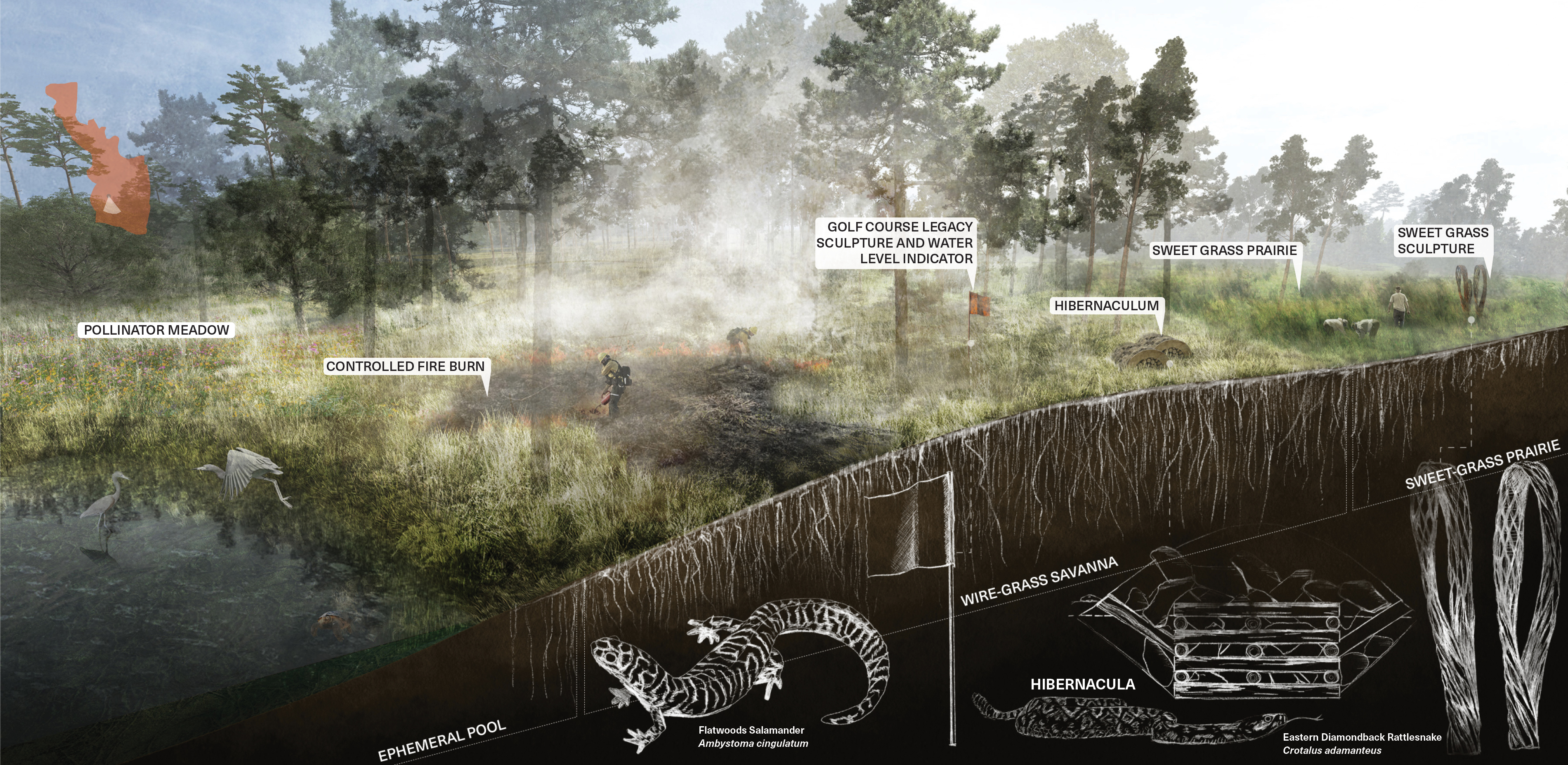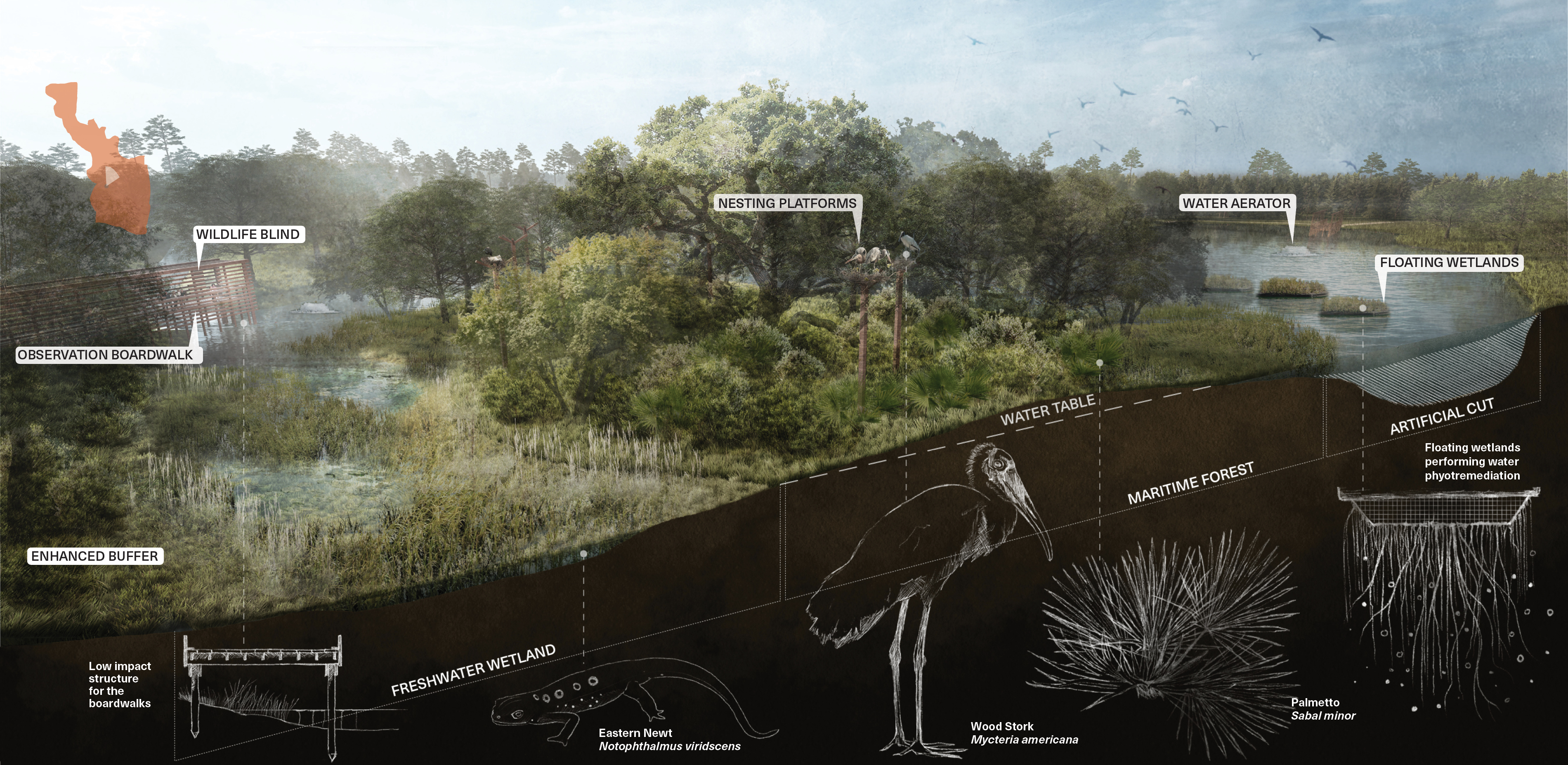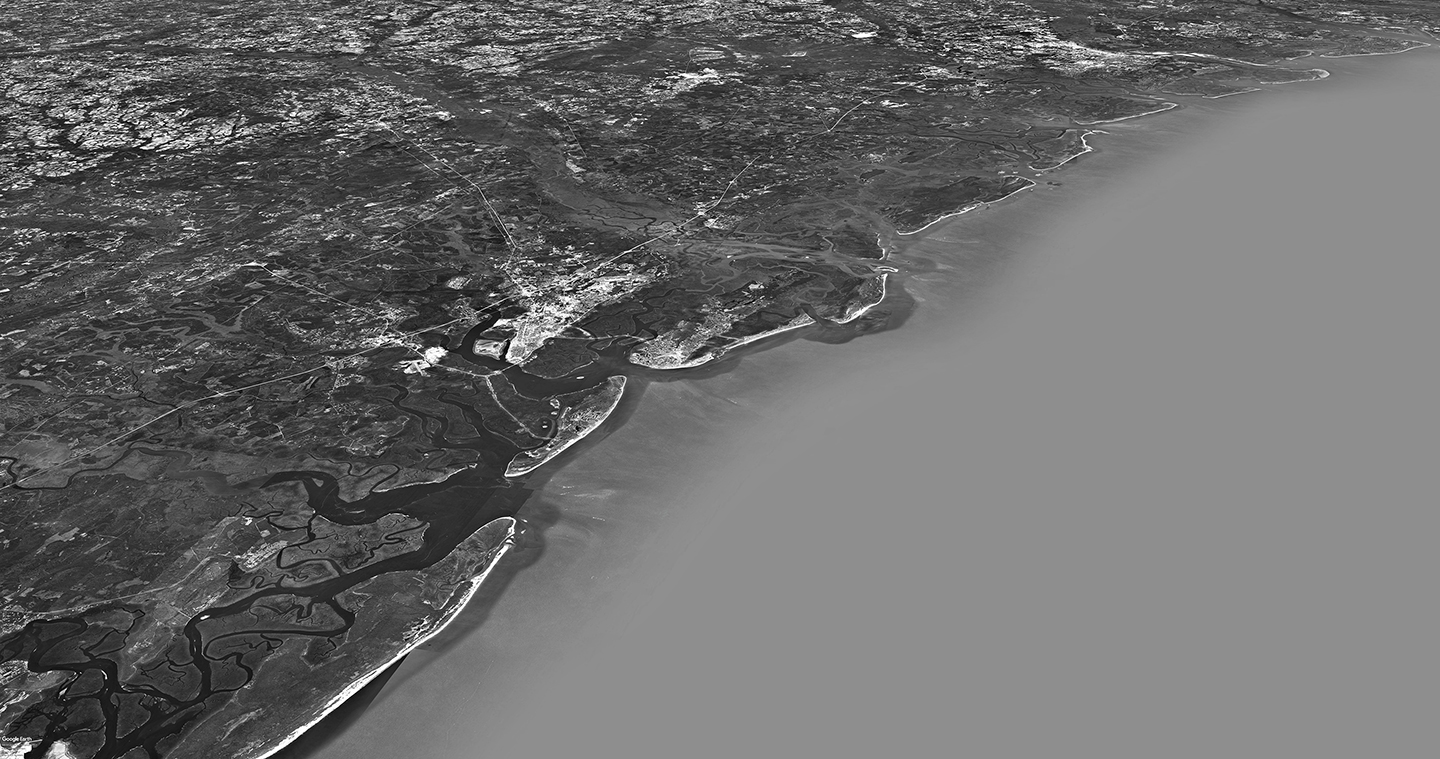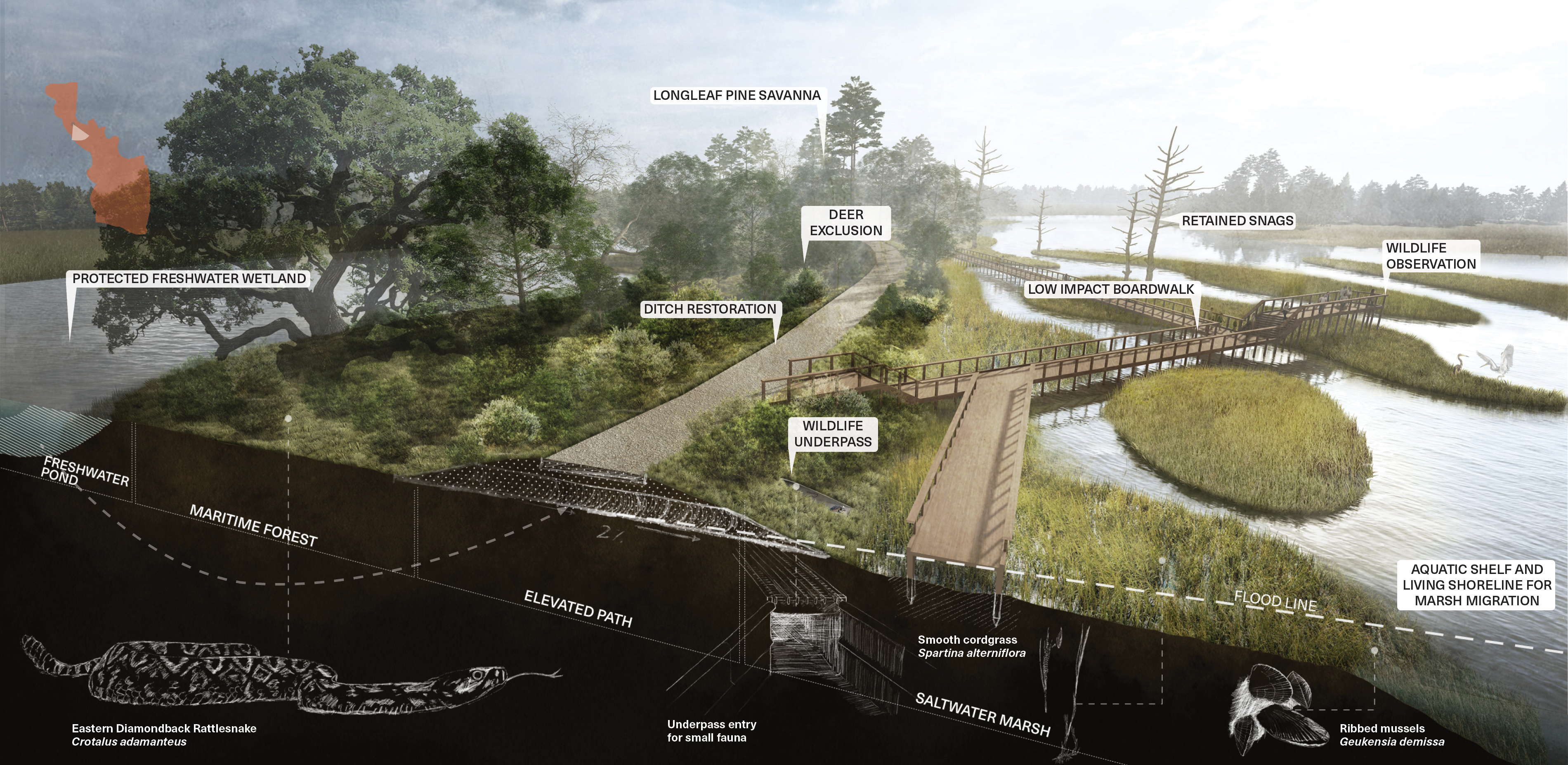Jekyll Island is a barrier island off the coast of Georgia known for its historic charm, unspoiled beaches, natural beauty, and reputation as a premier golf destination. The Jekyll Island ecological restoration project enhances an existing golf course called the Oleander Course – preserving its recreational value while transforming the surrounding landscape into a more resilient and ecologically vibrant environment. Rather than replacing the once fragmented and degraded site, the design integrates thriving native habitats that include longleaf pine savannas, coastal salt marshes, maritime forests, and sweetgrass prairies, preserving and enhancing the course’s original use. Design Workshop’s approach honors the island’s cultural and recreational legacy while protecting biodiversity, improving climate resilience, and setting a new precedent for the future of golf course design and restoration nationwide.
Restoring Natural Ecosystems
The Oleander Golf Course is uniquely positioned within a dynamic coastal ecosystem. Over time, invasive species, fire suppression, altered hydrology, and human activity have impacted the native ecosystem. Design Workshop is implementing a comprehensive ecological restoration plan that includes removing invasive vegetation, reintroducing native plant species, and utilizing controlled burns to rejuvenate the landscape. These efforts strengthen the island’s biodiversity and maintain the integrity of the land.

Ecological restoration plan.
Enhancing Water Management and Quality
Traditional golf courses require extensive irrigation and drainage systems. At the Oleander Course, existing golf course drainage infrastructure is being reimagined to enhance tidal flows, improve water quality, and support marshland migration in response to sea-level rise. Bioswales, permeable surfaces, and constructed wetlands are being introduced to naturally filter stormwater runoff, recharge groundwater, and reduce overall water consumption—ensuring a more resilient landscape that supports the environment.

Water management plan.
Climate Adaptation and Resilience
Barrier islands in the Southeast United States are particularly vulnerable to climate change, facing threats from sea-level rise, hurricanes, flooding, and shifting ecosystems. Often, these islands contain hundreds of acres of golf courses that are facing declining use, but these same areas hold enormous potential for restoring ecological function and reconnecting habitats. Design Workshop’s strategy incorporates predictive modeling and ecological assessments to ensure that the landscape evolves with changing conditions. Adaptive design features include integrating resilient topography, flood-tolerant vegetation, and natural buffers to help the landscape withstand extreme weather and future climate impacts.

Barrier islands, including Jekyll Island (second from left).
Blending Recreation with Conservation and Education
Beyond ecological restoration, Jekyll Island’s Oleander Golf Course transformation embraces opportunities for community engagement and education. Thoughtfully designed trails, boardwalks, citizen science activities, and interpretive signage and art provide visitors with immersive experiences that highlight the island’s ecological narratives. These enhancements not only foster environmental stewardship but also expand recreational opportunities, making the landscape accessible to a broader audience beyond golfers.

The plan blends environmental stewardship with recreational opportunites.
A Vision for the Future
Design Workshop’s work on Jekyll Island redefines what golf courses can become — landscapes that elevate both ecology and experience. Using a collaborative, science-based approach, the project brings together conservation biologists, horticulturalists, landscape architects, government officials, and scientists to creatively devise solutions to overcome challenges posed by sea-level rise, biodiversity loss, and loss of freshwater resources.
“We are honored to work alongside the Jekyll Island Authority to transform 115 acres into native habitat that restores biodiversity and creates new opportunities for people to engage with nature,” said Emily McCoy, Principal at Design Workshop. “This project sets a model for coastal communities to improve habitat and resilience in the face of climate change.”